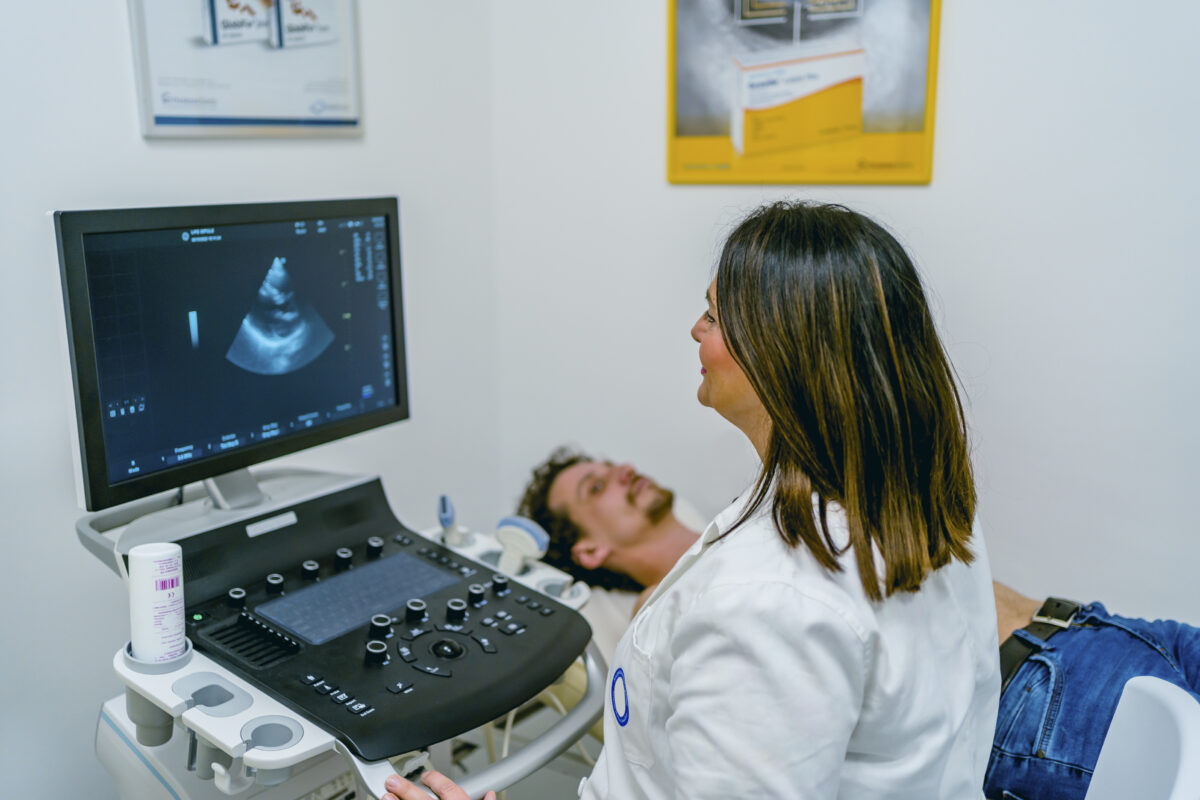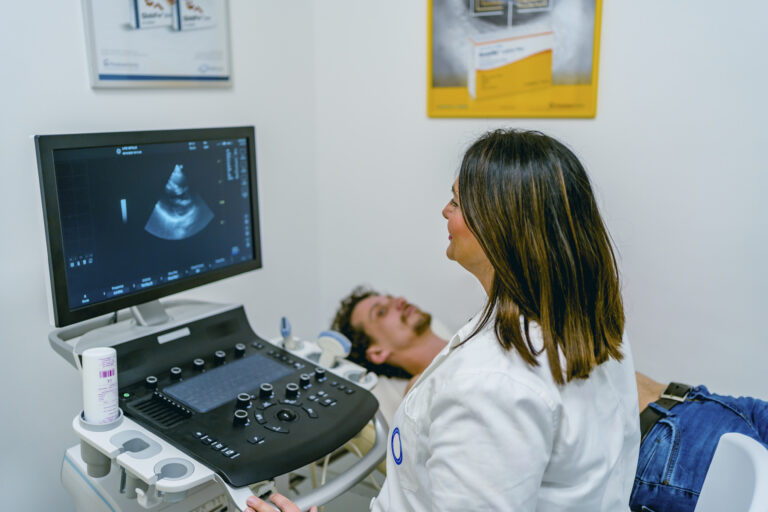You may have considered a career in ultrasound but didn’t realize the range of specialties available to discover. Along with Diagnostic Sonography, which encompasses the abdomen, breast, and OB/GYN, another area needs specialized attention. The heart and its vascular system are a complex system that, over a lifetime, can encounter many health issues. Diagnostic Cardiovascular Sonography utilizes images of the heart and the complex vascular system, to work in step with healthcare teams for diagnosis, treatment, and recovery plans of patients with cardiovascular concerns. If you want to specialize in one of the most important systems of the body, Diagnostic Cardiovascular Sonography is a highly sought-after and lucrative option! You can complete your education in just 18 months at Parker University through its Associate of Applied Science Program.
How does diagnostic cardiovascular sonography work?
Diagnostic cardiovascular sonography focuses specifically on ultrasound imaging of the heart and vascular system using high-frequency sound waves. This phenomenon translates as a moving image on the screen, allowing sonographers, cardiologists, and vascular specialists to observe all aspects of the heart and vascular system, evaluating the system from every direction. At Parker University, would-be cardiovascular sonographers receive detailed lectures to understand this specialty and ample clinical experience, preparing them for real-world jobs.
What is the most common method of imaging?
The type of echocardiogram the patient receives is determined by the symptoms, with the most common exam of the heart being the transthoracic echocardiogram. This scan provides an overall look at the health of the organ while only having to touch the skin! A transesophageal echocardiogram is a next-level process as a probe, with the help of a physician, is inserted in the esophagus for a closer look from behind the heart. If a patient is noticing symptoms while engaging instrenuous activity, a stress echocardiogram will be performed while the patient is performing exercise.
What and who do sonographers see?
Sonographers see it all! No one type of person comes to the table needing a sonogram. A unique array of people and heart conditions resulting from genetics, lifestyle, and diet will be encountered in your work. Diagnostic Cardiovascular Sonographers can help diagnose many cardiac and vascular variations, including: how medications are affecting the heart, making sure the heart is protected from the effects of chemotherapy, if mechanical valves are present, or if there are blood clots. Even advanced sonographers sometimes face surprises and must be the expert eyes and ears of the cardiologist. Parker University provides students with academic and clinical cardiac knowledge to prepare them for this fascinating and challenging career.
How long is the time spent with patients?
Imaging can take anywhere from 20 minutes for a simple vascular exam or up to an hour for more comprehensive transthoracic echocardiograms. Conversation skills are an often-overlooked part of the job. Patients often come in for exams anxious and worried. They often remember the sonographer with a warm attitude and calming nature that put them at ease. This will often help to create more accurate results since the sonographer can easily obtain the images they need when a patient is calm. Being a “people person” is a vital attribute of a great sonographer.
What is the required education? What is the work setting? What are average earnings?
The diagnostic cardiac sonography program at Parker University takes just 18 months to complete. According to the U.S. Bureau of Labor Statistics, the median income for this career is $75,380, and industry growth is higher than average. Diagnostic cardiac sonographers are in demand, and all of our graduates have had employment options immediately following graduation!
To learn more about Parker University’s prestigious Diagnostic Cardiovascular Sonography program and the various credentials and experience needed to excel in this career field, click here.

